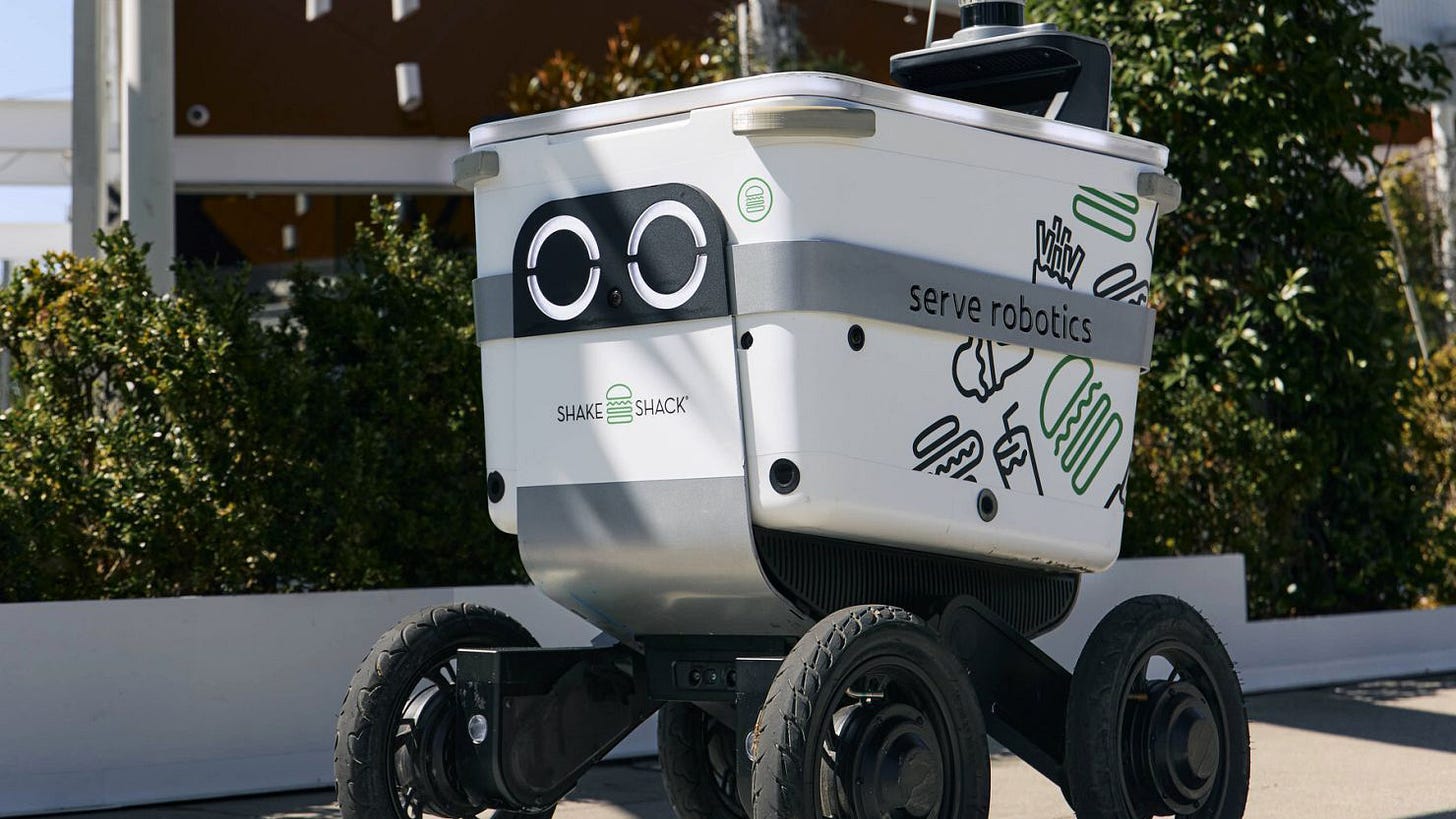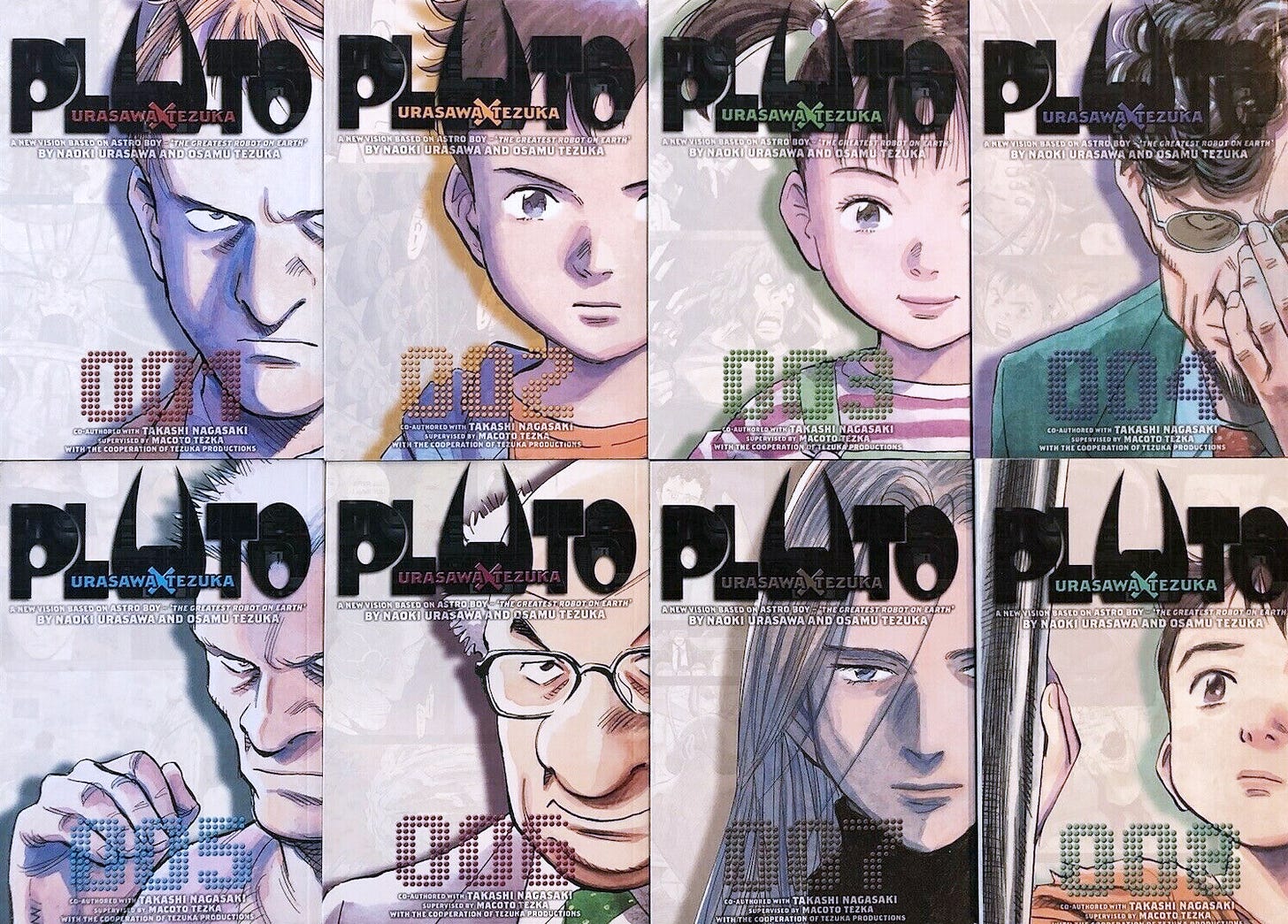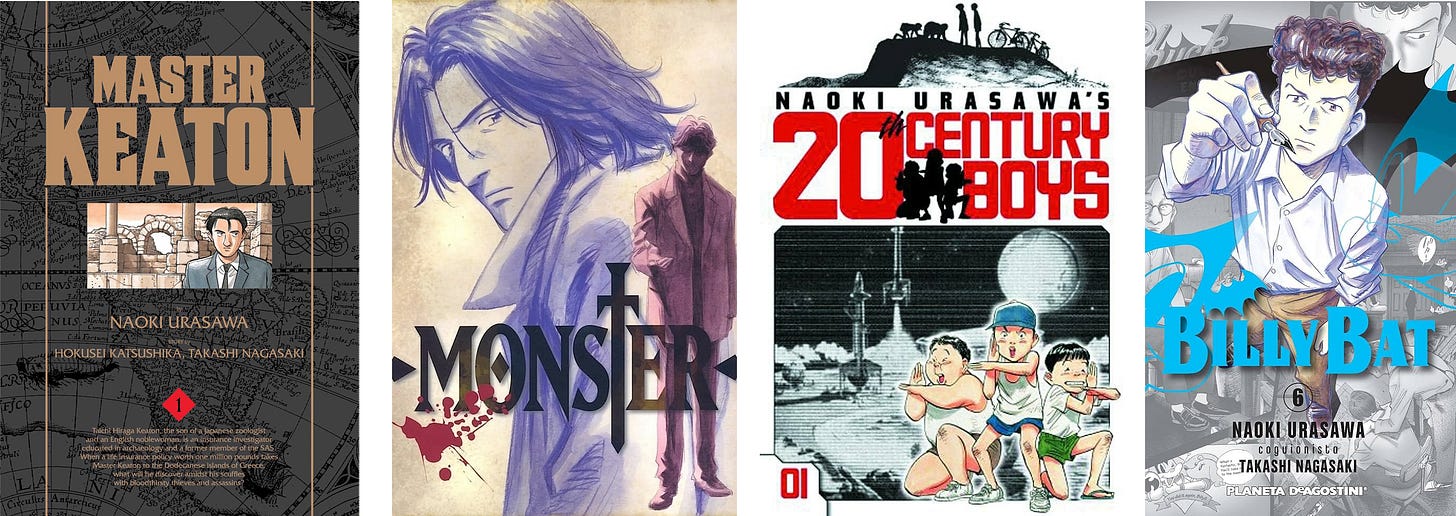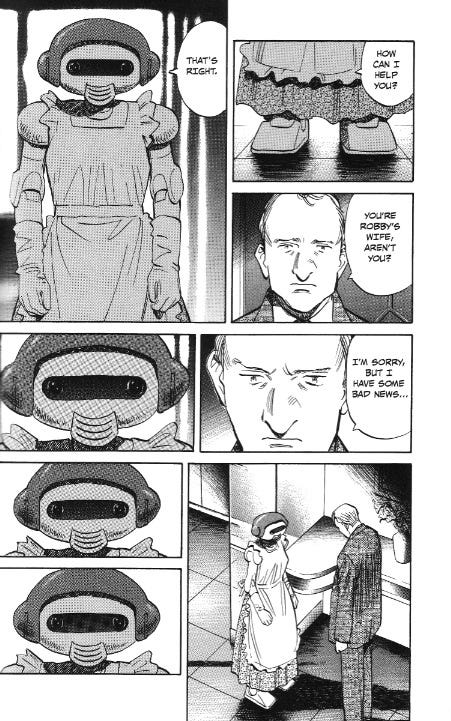Pluto and Urasawa's Imaginary Exploration on an Evolved-AI World
Today, I would like to talk about a manga series I really enjoyed. It’s a very short series (8 books total), but it’s very engaging and profound.
The manga series is Pluto, written by Naoki Urasawa 浦沢直樹 and Takashi Nagasaki 長崎尚志, and illustrated by Naoki Urasawa 浦沢直樹.
When it comes to art execution, art style, and storyboarding (panelings, story rhythms and beats), Urasawa is truly a master. He is one of the best-selling authors of all times and has won countless prestigious manga awards, making him one of the most influential manga creators. Some of his manga series include Master Keaton, Monster, 20th Century Boys, and Billy Bat.
The series Pluto is based off a story of Osamu Tezuka’s Astro Boy: “The Greatest Robot on Earth”. The original story followed Astro Boy as he battled the most evil and strongest robot created.
In Urasawa’s version, we follow a Europol robot detective as he tried to figure out a string of murder mysteries from around the world. It’s a really fun spin to the original story, but a much darker one. It explored themes that was very relevant to the geopolitical climate at the time, such as wars and weapons of mass destruction. (The series came out in 2003, when the Second Gulf War began.)
By International Robot Laws, robots were to never harm or kill humans. So, when all evidence pointed to a robot responsible to the murders, Gesicht the robot detective needed to figure out what happened.
One of the themes the series explores is the evolution of AI. As AI starts developing emotions such as fear, jealousy, bliss, empathy, and even love, should they be granted the same rights as humans, or are their emotions merely a figment of our imagination?
Remember, this series came out 20 years ago. A world of robots and AI was very much science fiction. Nowadays, we have pre-programmed robots strolling down the streets for food delivery, and usages of AI are constant headlines across all industries, from job replacements to productivity to ethical concerns.

We are entering a new chapter in human history. Pluto gave us a preview to our next ethical challenge: when AI are no longer merely the current narrow form of answering to and performing specific tasks, when they inevitably evolve to the next phase of AGI (Artificial General Intelligence), where they learn and adapt and apply knowledges without the needs of human giving them prompts, then what?
They have emotions. They reason. They even have individual personalities and a sense of self. (Or, do they?)
In the end, upon finishing the manga series, we couldn’t help but ask ourselves: what does it truly mean to be human?
Side note: For those wanting to learn more about AGI, there’s an interesting podcast episode on The Ezra Klein Show called “The Government Knows AGI is Coming”.
Check out Pluto. It’s a great read.
Note to teachers, parents, and librarians: While the original Astro Boy manga by Osamu Tezuka is young-reader friendly, Urasawa’s Pluto is dark and profound, filled not only with violence, but also parallels drawn to historically sensitive issues. This series is only for older teens and adults.
Have you read Pluto or any of Urasawa’s work? What’s your favorite series of his? What do you like most about Pluto? Please share in the comments below.
Until next time!






I haven't read those (and I'm afraid I'm not in the mood for dark and violent right now...or usually), but the snippet with the robot wife reminds me of all the Isaac Asimov robot stories that I love. Tangentially, I was chatting with an AP reporter yesterday about religion in comics; I mentioned about the monk in the Monkey King stories, and told her to read your Monkey King book. :)
Perhaps it's time for me to give "Pluto" another chance. When it was first published I was very much more interested in reading simple human stories in manga rather than complex stories about robots. However, the world has certainly changed quite a bit since then, and it may be that Urasawa's vision was more prescient than I knew...